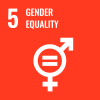Muyinga, 20 March 2023 – Aulérie is cultivating her small cornfield in Muyinga province in the north of Burundi. The grass and leaves look greener, and the ground feels softer, after one of the heavy downpours that Burundi is so familiar with. While Aulérie works the land with determination, she is worried that she might not be able to harvest the corn when the time comes.
“I am afraid that my brothers-in-law will take this property away from me,” she explains.
It would not be the first time this had happened to Aulérie. When she returned from neighbouring Tanzania in 2017, the mother of six discovered that her in-laws had sold part of the family property and had started working a field that belonged to her and her children. Aulérie had just lost her husband.
“I spent three years in court to fight the situation and eventually the court ruled in my favor.”
In Burundi, access to land is not only crucial for housing, but for agricultural activities, which support about 90 per cent of the Burundian population. Cases relating to access to land and housing constitute more than 70 per cent of the cases brought before the courts in the country.
Households that are unable to access and secure land have limited livelihood opportunities and are at a higher risk of eviction, which in turn leads to exacerbated protection risks such as human trafficking and gender-based violence (GBV). These risks are particularly relevant for internally displaced persons (IDPs), returnees and women-led households.
For Aulérie, regardless of the court’s ruling, the issue was not settled: “Everyone got their plot, and I received my husband's inheritance. But even so, the brothers of my late husband still want to take over my property. They think they can take everything from me.”
In a majority of African countries, including Burundi, land inheritance customs follow a patriarchal model, and legal housing, land and property rights are seldom known, particularly in rural areas. As such, women, even if legally married like Aulérie, are often vulnerable to their rights being put into question or being ignored. These challenges grow when women become widowers, leaving them to lead the household by themselves and engage in lengthy processes to claim the land and property that they are rightfully entitled to after their husband’s demise.
Documented land ownership is relatively uncommon in much of Sub-Saharan Africa, which heavily relies on customary tenure systems. Considering the legal ordeal Aulérie went through in 2017 and the continued use of her land by her in-laws, she is unable to shake the fear of waking up one day to find her land occupied and taken away from her. To feel safe, she wants to obtain a land certificate in her name: "I need help to register my husband's inheritance because as a woman, it is always difficult. This is the only way I can protect my belongings and pass it on safely to my children.”

Zawadi in front of her house, showing off her land certificate Photo: IOM Burundi 2023/Joëlla Bigirimana
Aulérie was identified by the International Organization for Migration (IOM) as one of the people who will receive assistance under the housing, land and property (HLP) programme. Aurelie received a sensitization briefing on her legal rights and assistance in the process of registering her land.
Aulérie’s success story stands for that of many women returning home. The International Organization for Migration (IOM) in Burundi adopts a gender lens in the implementation of HLP activities and is working closely with the Government of the Republic of Burundi via local authorities to address land tenure rights and strengthen land services. This is done through technical, material and operational capacity building of communal land services, as well as community sensitization of returnees and host communities on their land and property rights.
Understanding your rights and receiving support in claiming them is crucial, as Zawadi, another Burundian, explains. She was in a situation very similar to Aulérie’s when she met a local community leader who had participated in a sensitization session organized by IOM: "He advised me to register my plot and accompanied me through all the procedures. I followed his advice and now I live in peace."
Zawadi proudly shows her land certificate: “Look, everything is on this certificate, the boundaries of my plot are clear.”
This piece of paper is a great relief for the young widow, protecting her from legal contestation from her in-laws related to the ownership of the land that she lives on. The land is not only her source of livelihood but also offers access to credit facilities. "I can even take out a loan and make plans. I will be able to leave something to my children when I die.”
The stories of Aulérie and Zawadi show the powerful contribution of secure land tenure and property rights for women on the road to gender equality. Their stories serve as a reminder of the importance of respecting and protecting women’s rights to land and property.
The HLP activities are supported by the Bureau of Population, Refugees and Migration (PRM) of the United States Department of State.
Written by Joëlla Bigirimana, Communication assistant, IOM Burundi



